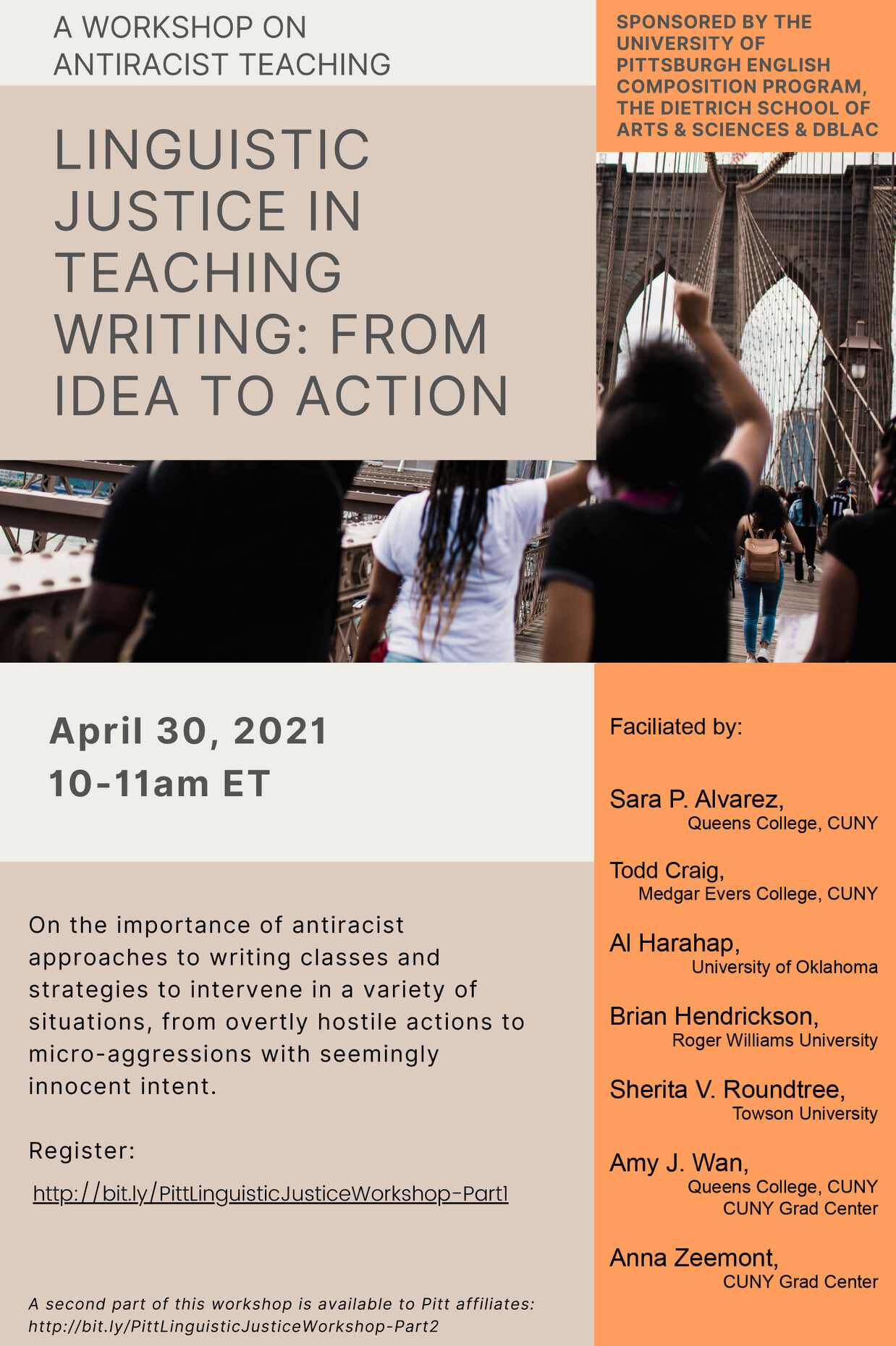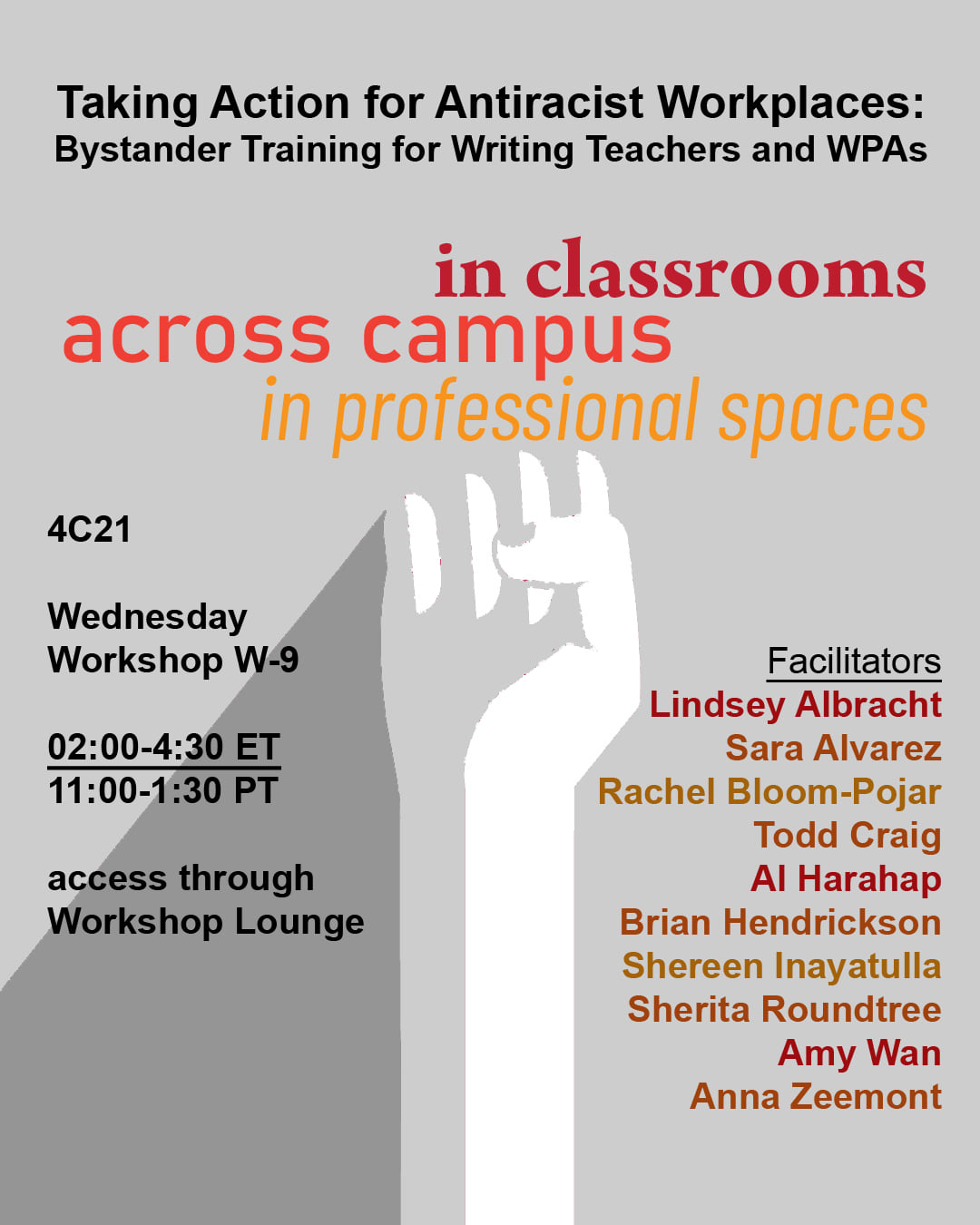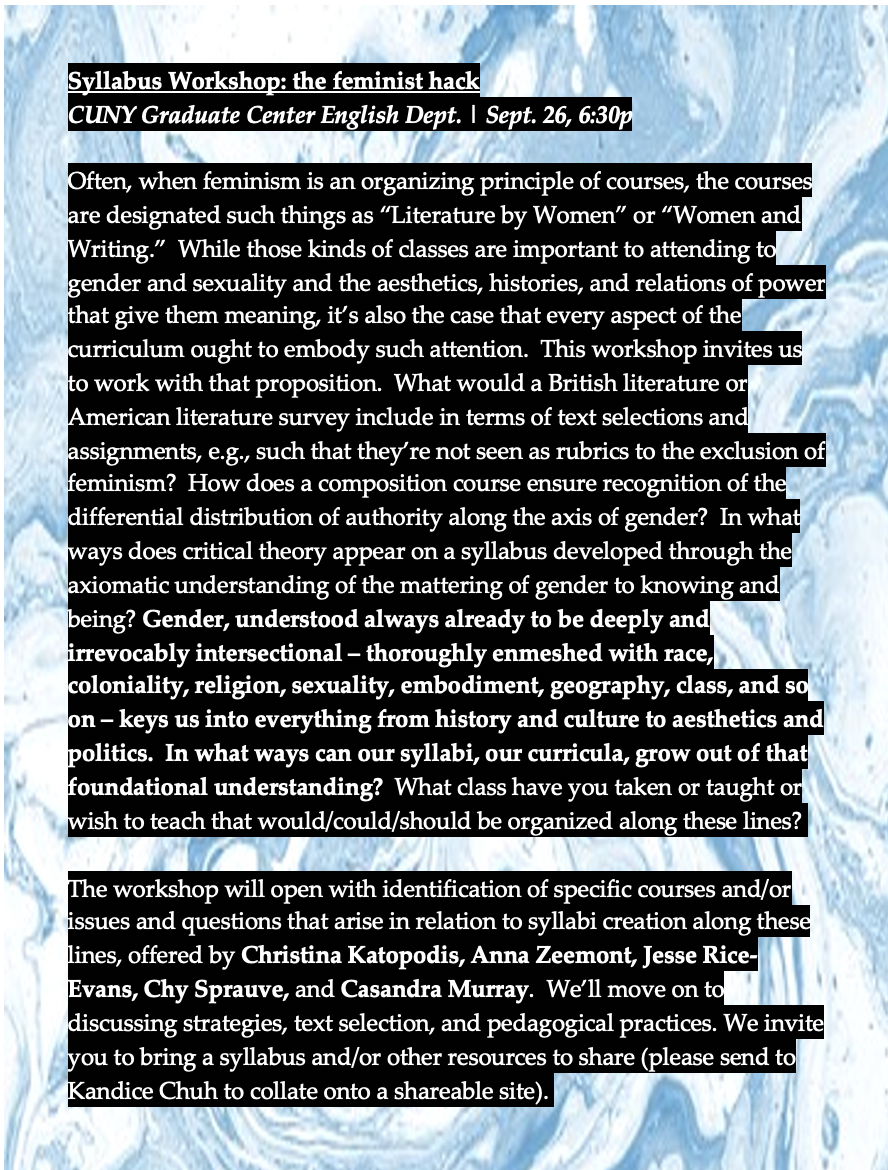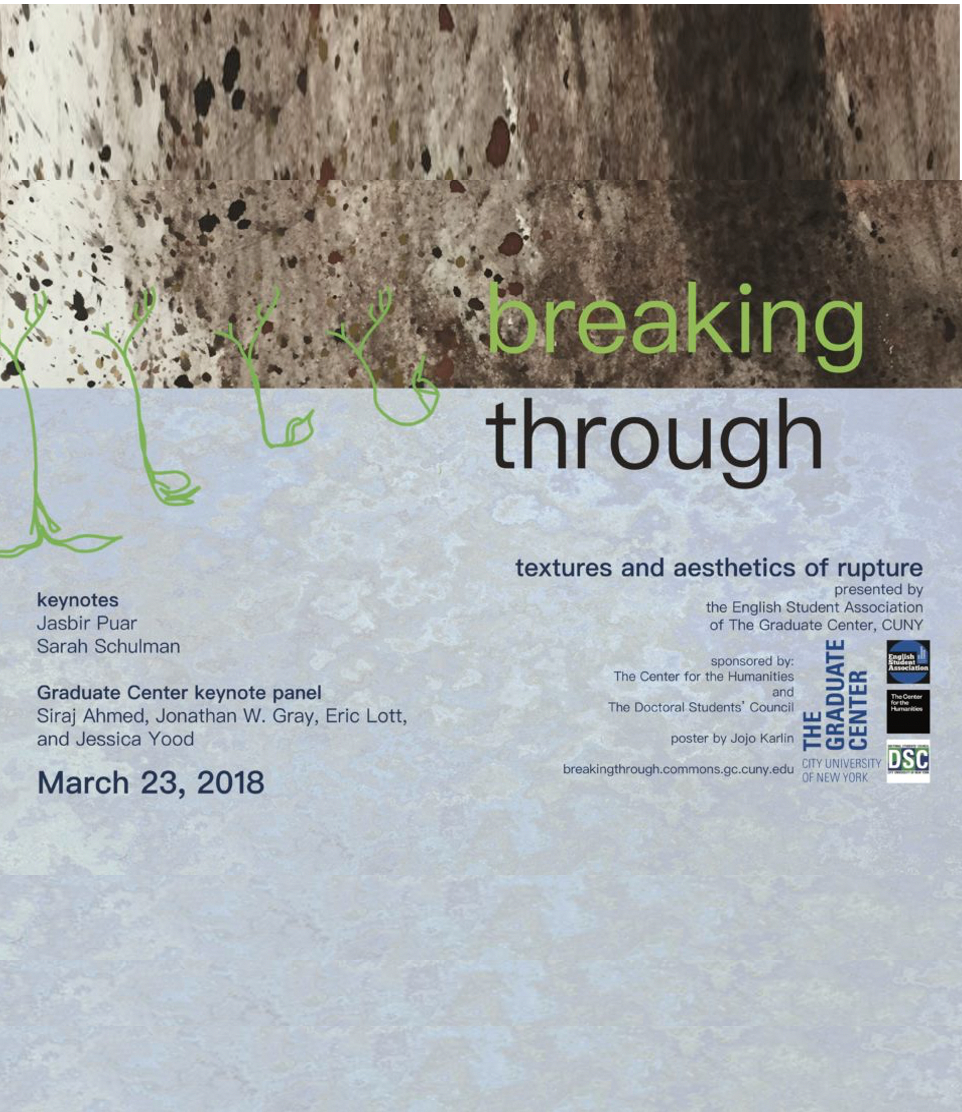I am deeply committed to critical and activist-oriented leadership and service work — on my campuses, across institutions, and in communities.
Here are a few events I’ve been involved with as organizer/participant!
Within my discipline, I’m assistant editor at the new journal Rhetoric, Politics, & Culture, which was founded pointedly to intervene in hegemonic whiteness in rhetorical studies and academic publication structures, centering “perspectives that question in/justice, in/equity, power, and democracy and that attend to interlocking structures of power within their geopolitical and historical contexts.”
I’m also on the editorial board of the Journal of Interactive Technology and Pedagogies (an interdisciplinary publication with foci in multimodality and the intersection of digital technologies and schooling), as well as a peer reviewer for several other publications.
At CUNY, I recently ended a two-year tenure as the co-director of Comp Comm, the Graduate Center’s Composition & Rhetoric Community, where I helped organize panels/workshops and bring in speakers from across New York with expertise in composition-rhetoric and related areas. I also served as an elected representative on the Diversity Committee of the GC’s English Student Association (ESA).
I continue to be very involved with institutional and activist projects around intersectionality, racial justice, and anti-racism at CUNY and beyond. To this end, with a multi-institutional, multi-rank coalition of composition scholar-activists, I’ve led public workshops on topics like anti-racist bystander trainings and linguistic justice.




![Poster for event that reads: Wendy's Subway and Lost & Found [present]: Transforming CUNY Admissions, Studies, Movements, Wed, Wed, Jan 20, 2021, 06:00 PM – 08:15 PM (EST). Featuring: Gisely Colón López, Ricardo Gabriel, Tami Gold, Amaka Okechukwu, Pam Sporn, & Anna Zeemont. New addition! MAKING THE IMPOSSIBLE POSSIBLE film screening. Register: tiny.cc/radiatingcuny. Conor Tomás Reed~Wendy's Subway residency "Radiating Black~Puerto Rican~Feminist Studies from the City University of New York to the Americas and the Caribbean." Image [in background, of student protestors] source: SLAM! Herstory Project](http://azeemont.ws.gc.cuny.edu/files/2021/09/transforming-poster-scaled.jpg)